#Romanian drama film
Text
https://romaniasweetromania.com/2023/09/marian-hudac-si-succesul-ne-poate-fi-dusman/
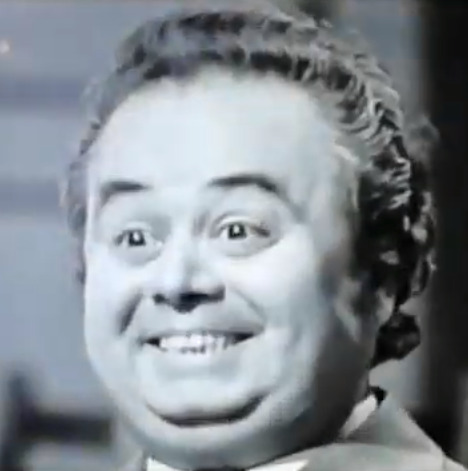
#actori romani#Chirita#film romanesc#Marian Hudac#Marina Hudac#teatru romanesc#Teatrul National Bucuresti TNB#televiziune#romanian actors#romanian movies#romanian theater#drama
0 notes
Text

heaves a heavy sigh because fucking crap I am in LOVE
Okay so. This was not meant to even go this far but here I am. Absolutely far gone. My INITIAL plan was to try to come up with a big bad villain to write a TWST fanfic about because I love taking all my favorite characters...throwing them in hell...and then orchestrating the drama and chaos while going: "why would anyone do this to these poor innocent peoples?" and "hahaha this is SO fun their suffering fuels me!".
One of my all-time favorite movies growing up was Anastasia. The 1997 animated Don Bluth film. So, I was like "oh boy what if I did a twist on that version of Rasputin?" Which holds promise considering he is a powerful lich sorcerer coded in death, ghosts, limbo...all my favorite tropes that I cannot get enough of. But Rasputin aint shit without his sassy bat familiar, Bartok. Their dynamic is interesting considering Bartok spends the entire movie telling Rasputin to get a life and stop trying to kill Anastasia. So, I thought on twisted Bartok more and....it just...it hasn't stopped. It hasn't stopped.
Now we got Sashmir Magnifico. The twisted version of Bartok AND Anastasia. Originally, he was just going to be twisted Bartok, but I ended up adding in elements of Anastasia to him as well and I liked it.

Sashmir is a bat beastman and a lot of people assume he is an albino bat, but his lack of pigmentation is a side effect of his Unique Magic; "Together In Spirit". He doesn't go further into details about it other than 'the adults around him growing up were not knowledgeable of magic and forced him to use his magic for the benefit of others without thought of the consequences on him'. Only a few people know his UM and its capabilities, and he wants to keep it that way. The incantation for his UM is:
"I am the key...that unlocks your potential...I promise we shall stay...TOGETHER IN SPIRIT."
Sashmir is a 2nd year student at Night Raven College in Ignihyde dorm. He is interested in biology and the combined use of magic and science for enhancing and healing the human(oid) body and mind. He also has a passion for music, having learned how to play most instruments to a passable degree and he taught himself how to write sheet music. He does so with popular songs and makes them available to the public while recording himself playing them online. He loves teaching...and tutors for free on Monday and Wednesdays at 12AM in the Ignihyde dorm lounge. He had hoped to one day become a music teacher but decides the more practical route would be to continue magical medical sciences. He doesn't like shoes and has lost his shoes when taking them off and leaving them places. One of the first time of magics he had learned was levitating as it felt natural for him to not be on the ground all the time. Personality wise, he is rather chill and easy going. He speaks in a Romanian accent and isn't afraid to clap back with the sass or defend himself if challenged.
Sadly, Sashmir is under the thumb of a powerful and dangerous sorcerer...and the days are numbered until his master makes his grand appearance and destroys the "peace" of NRC. All according to plan and...all that evil jazz.
I have a LOT MORE THINGS TO SAY but I will make a post specifically for his info dump I guess. I'm sorry I love this boy... Also you see the candy and coffin...if you know...you know.

#sashmirmagnifico#twisted wonderland#disney twisted wonderland#twst#disney twst#twst wonderland#twst oc#twisted wonderland oc#my art#oc art#original character
26 notes
·
View notes
Note
k so i have a screenwriting project for drama, 30 min short film, i have like Some ideas but they're not good. you mention in my notes that in Romanian folk Christianity that God created Satan because he was lonely, that's compelling, could you share more? Could you give me research jumping off points?
Hi, sorry it took me a moment, but, again, craziest week in a while and it's not even because of DW.
But yeah, there appears to be a general idea of some kind of fraternal/co-creative relation between God and Satan in some folk Christian traditions. Arguably it's more the case of older myths getting a Christian makeover (sth sth Odin and Loki being blood brothers). Still, we end up with Satan and God hanging out amicably by the sea while bishops excommunicate each other over whether the Holy Spirit comes directly from the Father through the Son or simply from the Son.
The guy where I got this from was Mircea Eliade and he sort of applies jungian psychoanalysis of collective unconscious to religion. The specific essay is available on Internet Archive (my beloved) on pages 78-124. It's titled Mephistopheles and the Androgyne or mystery of the whole. Just fair warning, Eliade was writing in the first half of the 20th century and some of his vocab may be... not on par with modern sensitivities especially on Tumblr? He's not intentionally insulting or anything, just uses words like "gipsi" or presents male and female as discrete opposites or his information may be more anecdotal than thoroughly researched. So just. fair warning. It's brilliant in terms of finding general stories and their interpretations, so I hope it will be useful.
Some good bits (sorry, no quotes, the pdf is not editable):
Romanians have God and Satan be brothers or Jesus and Satan both be children of God
Ethiopians have a Saint and Devil-Woman be siblings (he ends up praying to Jesus for strength to murder his sister)
Peoples of Altai have God create the Devil by spitting on the Waters after exclaiming "If only I had a brother, I would make the World!". Then Satan suggests they be brothers and create tWorld together, but God answers "We will not be brothers but companions"
Romani of Transylvania have God be "unhappy alone" and admitting They don't know how to create the World, hence creating the Devil
Finnish version has God ask Their reflection in Waters how to create the World
Bulgarians dead ass have God see their shadow and tell it "Get up, comrade!" Satan then asks God to split thr Universe between them
Bottom line: knowing that this is the shit I've been into since I was a teenager, imagine what finding thoschei and especially tensimm did to my brain.
#always happtmy to infodump#mircea eliade#philosophy in doctor who#thoschei#yes i'm tagging this as those pathetic morons archetypes manifest in many forms
20 notes
·
View notes
Text
'2023 was awash with leading queer men (finally), from Andrew Scott and Paul Mescal in the psychological ghost story All of Us Strangers and Jonathan Bailey and Matt Bomer in toe-sucking drama Fellow Travelers...
One of the most anticipated new films, however, is The History of Sound. The queer romance drama, adapted from Ben Shattuck’s titular novel, had pulses racing when Mescal and God’s Own Country star Josh O’Connor were cast as the leads back in 2021. (We can understand why. We suffered the same fate.)
From cast members to the plot, here’s a recap of everything that we know so far about The History of Sound.
What’s the plot?
The History of Sound is based on the Pushcart Prize-winning novel by Ben Shattuck, a collection of 12 short stories that are set across three centuries and explores the generational patterns of love and loss. Each following story provides a revelation of the previous entrant.
The title story follows two young men in the shadows of WWI who are determined to record the lives, voices and music of their American countrymen. Lionel (Mescal) and David (O’Connor) begin to log the events, whilst falling in love in the process.
The adaptation is being directed by Oliver Hermanus and produced by Tim Haslam, Andrew Kortschac, Lisa Ciuffetti and Andrea Roa. Hermanus is best known for his Queer Palm Award-winning romance Beauty (2011). He also serves as the director and executive producer of Sky Atlantic’s upcoming historical queer series Mary & George, which stars Oscar winner Julianne Moore and Red, White & Royal Blue’s Nicholas Galitzine...
Who is in the cast?
The only two cast members confirmed for The History of Sound are Mescal and O’Connor.
O’Connor memorably starred in the critically-acclaimed same-sex romantic drama God’s Own Country. The heartfelt love story develops when a Yorkshire farmer’s (O’Connor) life changes with the arrival of a Romanian migrant farm hand named Gheorghe (Alec Secăreanu). Despite initial tension, the two soon become engaged in a passionate meet in nature.
Mescal, who rose to fame in BBC’s Normal People, recently starred in Andrew Haigh’s psychological adaptation of Japanese ghost story All of Us Strangers opposite Andrew Scott. The film follows Adam (Scott), a screenwriter who is pulled back into his childhood home “where he discovers that his long-dead parents are both living and look the same age as the day they died over 30 years ago”. At the same time, Adam falls in love with his “mysterious” neighbour Harry.
In an interview with Variety at the time of the cast announcement, Hermanus opened up about the powerful love story and working with Mescal and O’Connor.
“I instantly fell in love with Ben Shattuck’s flawlessly beautiful short story and knew I had to be involved in its journey to the screen. Paul and Josh are two of the most promising actors of their generation who will share with us deeply soulful performances,” he said.
“This is an unexpected love story that needs to be told — it is a journey through the life of America, across the 20th century and the traditions of American folk music, all seen through the bond between two men immersed in the history of sound.”
Has filming started?
The film had been slated to begin filming in summer 2022, across the US, UK and Italy. However, Mescal revealed in a May 2022 interview with The Hollywood Reporter that the film was on pause due to conflicting schedules.
“But the learning for me is that I’m just dying to make films with people I like, and Josh is one of those people that I would work with in a heartbeat,” he shared.
On 11 January 2024, FilmUpdates posted that the film was due to begin filming in March, this year...'
#Paul Mescal#The History of Sound#All of Us Strangers#Andrew Scott#Jonathan Bailey#Matt Bomer#Fellow Travelers#Josh O'Connor#Ben Shattuck#Oliver Hermanus#Normal People#Andrew Haigh#God's Own Country
16 notes
·
View notes
Text
There's a movie coming out next month in my country that is about a teacher (white European) teaching a young Romani delinquent how to read, which sounds like your typical social drama tbh, but then I looked up an interview with the filmmaker and he says "When I was researching for the film, I learned the Roma live off the grid and they can't fathom putting their children to school" huh! what! Roma don't live off the grid, Romani people are members of the same society everyone else lives in, we don't make up an inner society full of illiterate criminals. It is true that schooling is an issue with Romani people due to our social standing and economic struggles but you can't generalize a population of 15 million people that way. Then he says "but some associations do take care of them" by schooling them. Well guess what! I'm in one such association and that's such a poor way of looking at it. When my friend and I go volunteering (and that goes for everyone else in my association), we work with the parents of the kids because those parents do have the best interest of their children at heart, otherwise they wouldn't keep in touch with the association. It's not the association that takes care of the kids, it's the parents who take care of their children's education by relying on outside help when needed. Don't erase those parents. Later on, he says "I didn't want to make a political movie or a pro-migrant movie, so I chose to focus on Romani people because Roma are Europeans. If I had focused on Syrian people or on African people, it would have been much different. I wanted to talk about education, not integration." Except that migration politics have a lot to do with the situation of Roma in my country and the Romani actor he cast is a Romanian immigrant. This doesn't make sense. And at the end, he says "I didn't want to make a pro-Romani or an anti-Romani movie" why should people take position in favour or against the mere existence of a group of people? This is so tone deaf. I can't believe that movie is coming out, that man looks so unserious and his research seems so poor.
16 notes
·
View notes
Note
just wanna let you and other My Brilliant Friend fans know that there's a movie set in the 60s coming out where Gaia plays the main character and has a love story with another woman!
Oh, I'm sure most people know by now! We are a bunch of thirsty knowledgeable sapphics! 😁
The movie is called Girasoli and it's Catrinel Marlon's opera prima. I don't know her, she seems to be an actress and model of Romanian origin. It stars our dear Gaia Girace alongside Mariarosaria Mingione. Watch the trailer here.
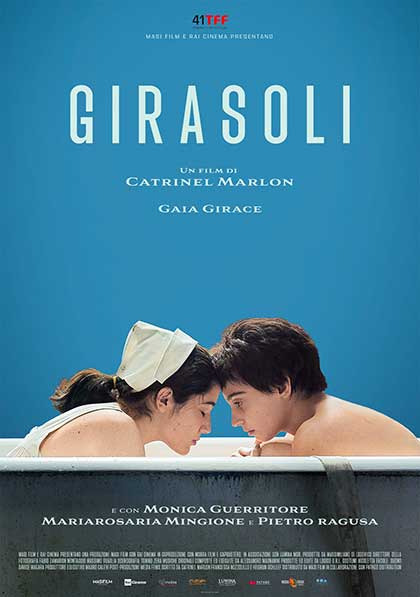
The film, which I believe has just premiered in the Torino Film Festival, is set in the 60's and tells the story of Lucia (Gaia), a supposedly schizophrenic intern in a mental institution, and Anna (Mariarosaria), who arrives there as the new nurse. The marketing texts I've read already call it an impossible love story, so I guess that the girls aren't going to flee together, escape the patriarchal power structure and live happily on this one either.
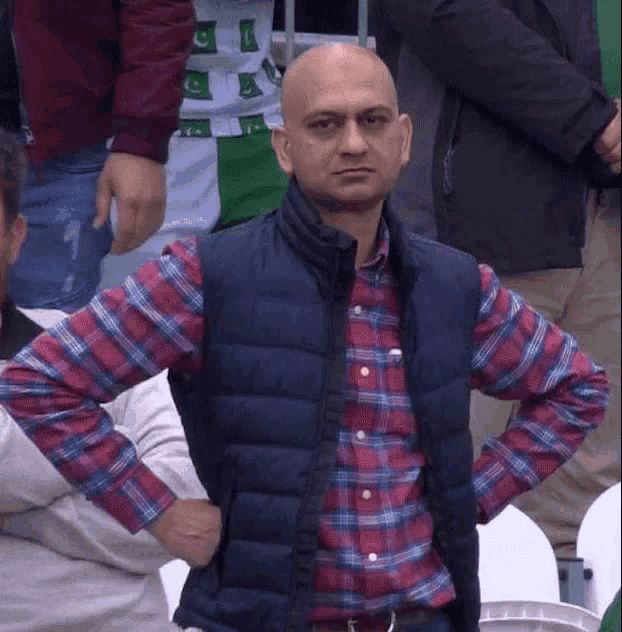
In fact, the trailer is very reminiscent of MBF in the sense that every scene of the girls together is stuff that Lenù and Lila already kind of did in the show, from the bath to the dancing and even the hand touching in the back of the car. I guess it's... a coincidence? Not?
This has also reminded me of this wonderful sketch from Saturday Night Live called Lesbian Period Drama. I love all the movies referenced, but "featuring Academy Award Glance Choreography and best supporting actress nominee: The Wind" has me cackling with laughter every time.
Anyway: Sure, I mean, I'm gonna see it. 🤷♀️
#my brilliant friend#gaia girace#girasoli#catrinel marlon#mariarosaria mingione#lesbian period drama#snl#saturday night live#sapphic movie
12 notes
·
View notes
Text
The Guardian
Ali Abbasi’s film, starring Sebastian Stan, presents a fictionalised account of an incident recorded in Ivana Trump’s 1990 divorce deposition, and since retracted
The Apprentice review – cartoon version of chump-in-chief Donald Trump’s early years
Xan Brooks
Mon 20 May 2024 13.22 EDT
Donald Trump is depicted as a rapist who assaulted his first wife, Ivana, in a new biopic, The Apprentice, which has its world premiere in competition at this year’s Cannes film festival on Monday. Directed by the Iranian-Danish film-maker Ali Abbasi, the drama provides a fictionalised account of a 1989 incident that was previously detailed in the couple’s divorce proceedings.
The Apprentice review – cartoon version of chump-in-chief Donald Trump’s early years
The scene, which occurs near the end of The Apprentice, depicts Trump reacting with fury after Ivana disparages his physical appearance. “You have a face like a fucking orange,” she tells him. “You’re getting fat, you’re getting ugly, and you’re getting bald.” The future president is then shown forcing his wife to the floor and raping her. “Did I find your G-spot?” he asks in the film.
In her 1990 divorce deposition, Ivana Trump described a similar assault that she said occurred shortly after her husband’s scalp-reduction surgery. She claimed that Trump pushed her to the floor and pulled out handfuls of her hair. Ivana initially described what followed as a rape, but later walked back on the claim. In a 1993 statement, she said, “On one occasion during 1989, Mr Trump and I had marital relations in which he behaved very differently towards me than he had during our marriage. As a woman I felt violated … I referred to this as a rape, but I do not want my words to be interpreted in a literal or criminal sense.”
During the couple’s divorce proceedings, Trump dismissed his wife’s version of the incident as “obviously false”.
Scripted by the bestselling non-fiction author Gabriel Sherman, The Apprentice casts Romanian-born actor Sebastian Stan as Trump and Maria Bakalova as Ivana, while the Succession star Jeremy Strong plays the brutish New York lawyer Roy Cohn. The film is a twisted rites-of-passage drama that shows Cohn schooling the young Trump in the dark arts of American business. One of the key rules, Cohn tells Trump, is: “Admit nothing, deny everything.”
The Apprentice is competing for Cannes’ crowning Palme d’Or award. However, while the Canadian, Danish and Irish-backed production has already been sold to a number of foreign territories, it has reportedly yet to land a US distribution deal. The film is also claimed to be facing a legal challenge from lawyers connected to billionaire Trump donor Dan Snyder. Variety magazine reports that Snyder had invested in The Apprentice believing that it would paint a positive portrait of Trump and was rumoured to have been outraged after viewing a rough cut of the film.
Since the 1970s, at least 25 women have accused Trump of sexual misconduct, which he has denied. Last year the former president was found liable for the sexual abuse of the writer E Jean Carroll in the mid-1990s and was ordered to pay damages of $83.3m. He has never been charged with or convicted of rape.
Ivana Trump – the mother of Donald Jr, Ivanka and Eric Trump - died in July 2022 after falling down the stairs at her home in Manhattan. Her body is buried on the grounds of the Trump National Golf Club in Bedminster, New Jersey.
#the apprentice review#the apprentice#sebastian stan#donald trump#jeremy strong#roy cohn#maria bakalova#ivana trump#ali abbasi
2 notes
·
View notes
Text

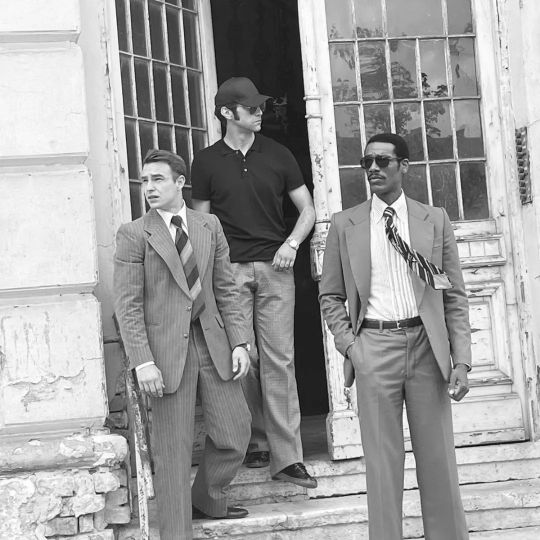


Nico Mirallegro has been in Romania and Hungary, filming a new HBO Max Original, 'Spy/Master', a spy drama series set during the height of the Cold War.
'Spy/Master covers a week in the life of fictional character Victor Godeanu (Alec Secăreanu), the right-hand man and closest advisor to Romanian dictator Nicolae Ceaușescu. However, Godeanu has a secret: He is also a double agent and must escape Romania and Ceaușescu before his cover is exposed.
With only one shot at staying alive, he uses a diplomatic trip to Germany as a springboard to the States. Helped by an undercover Stasi agent and former flame, played by Deutschland89’s Svenja Jung, and an up-and-coming CIA agent, played by Parker Sawyers ('Southside With You'), Godeanu must elude the KGB and his own country’s spooks (Ana Ularu and Laurențiu Bănescu), fully aware that his defection is putting his family back home in mortal danger.'
Nico plays 'John Miller'. He seems to have worked closely with Parker Sawyers, who plays the CIA agent, so Nico's character might a British or American agent.
Ceaușescu was President from 1974 to 1989, but those suits look very 70s, so I'm guessing the drama is set early on in his dictatorship.
Spy/Master will have six 50-minute episodes. Broadcast date TBA.
#nico mirallegro#period drama#spy drama#cold war#nicolae ceaușescu#romanian history#romania#tv series#tv drama#1970s#hbo max#2022#2023#spy/master#espionage#alec secăreanu#svenja jung#parker sawyers#ana ularu#laurențiu bănescu#christopher smith#adina sadeanu#kirsten peters
35 notes
·
View notes
Note
OHHHH ANDREA DI LUIGI IS FINEEEEEEEEEEEE. HIM IN NUOVO OLIMPO WAS JUST !!! speaking of lgbtq series/movies, do u have some recommendtaions ?
💌 : i really gotta start watching it. 😭
OOOH, I HAVE SO MANY! most if not all the films i have listed are MLM, just because i consume them the most, lol.
⭐️ = favorite
MOVIES:
i'll try not to include well-known movies like 'Moonlight', 'Call Me By Your Name', 'Brokeback Mountain', and 'Fire Island', but if you haven't seen any of those films, i highly recommend them!
The Way He Looks (2014): Leonardo is a blind teenager searching for independence. His everyday life, the relationship with his best friend, Giovana, and the way he sees the world change completely with the arrival of Gabriel.
brazilian, coming-of-age, drama, romance, high-school.
Maurice (1987): After his lover rejects him, a young man trapped by the oppressiveness of Edwardian society tries to come to terms with and accept his sexuality. ⭐️
uk, drama, romance, edwardian era.
Another Country (1984): In Moscow in 1983, an American journalist interviews Guy Bennett, who recalls his last year at public school, fifty years before, and how it contributed to him becoming a spy. ⭐️
uk, drama, historical.
God’s Own Country (2017): A young farmer in rural Yorkshire numbs his daily frustrations with binge drinking and casual sex, until the arrival of a Romanian migrant worker.
uk, drama, romance.
All of Us Strangers (2023): One night, screenwriter Adam, in his near-empty tower block in contemporary London, has a chance encounter with his mysterious neighbor Harry that punctures the rhythm of his everyday life. As Adam and Harry get closer, Adam is pulled back to his childhood home where he discovers that his long-dead parents are both living and look the same age as the day they died over 30 years ago. ⭐️
uk, romance, drama, fantasy.
Happy Together (1997): A couple take a trip to Argentina in search of a new beginning, but instead find themselves drifting ever further apart. ⭐️
hong kong, romance, drama.
Monster (2023): A single mother demands answers from a school teacher when her son begins acting strangely. A fight at school causes even more trouble. ⭐️
japan, thriller, drama. a little more unique since the lgbtq+ isn't really at the forefront, but each rewatch gives the film an entirely new meaning!
TV SERIES:
i don't really watch much tv shows in the first place, but when i do, usually queer relationships aren't the center of the plot. these are the shows, other than the famous ones, that i remember watching and liking!
Looking (2014-2016): Three best friends living in San Francisco share the nuances and complexities of contemporary gay relationships as they explore a variety of options, both in love and in life. They are unified by their close bond, but their search for happiness and intimacy has taken them on separate paths.
Interview With the Vampire (2022-Present): In the year 2022, the vampire Louis de Pointe du Lac lives in Dubai and seeks to tell the story of his life or afterlife to renowned journalist Daniel Molloy. Beginning in early 20th-century New Orleans, Louis' story follows his relationship with the vampire Lestat du Lioncourt and their formed family, including teen fledgling Claudia. Together, the vampire family endures immortality in New Orleans and beyond. As the interview continues in Dubai, Molloy discovers the truths beneath Louis' story. ⭐️
i can recommend novels/books much easier for lgbtq+ relationships, so let me know if you want a recommendation list on them as well!
5 notes
·
View notes
Text
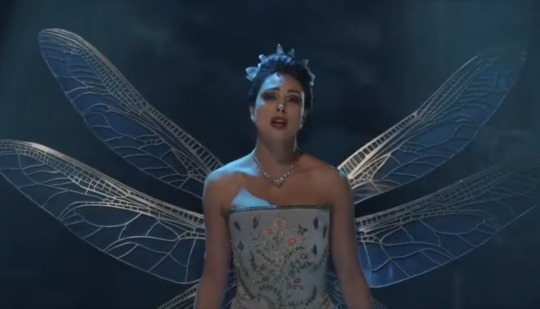
Beatrice Baudelaire (Hcs)
• Baudelaire was her name before marriage.
•Her and Bertrand never had a wedding as they technically got married on an island, they just done the paperwork when they came home.
•straight but has “bi-husband” energy™️
•Romanian/American. (Mum was 1st gen romanian immigrant to America, dad was American)
•Trilingual; English, Italian and Romanian
•Would die for Monty (he’s a December boy so was the youngest in their year group in school.)
•Was briefly an actress, Co founder of Prufrock Prepatory School Drama Club (ft Count Olaf- also Co founder, Jacques Snicket and Larry Your-waiter)
•Her, Kit and Esme used to have really girly sleepovers. Bea rlly missed them after the schism.
• Ballet dancer (briefly)
•Very shaky hands, can’t paint her nails to save her life.
•cries when she sings, sings when she cries.
•favourite Disney film is lady and the tramp.
•loved a Sunday dinner, went to a pub in England and had steak pie once and thinks about it every day.
•Has known Olaf’s family since they were young, regarded each other as sort of cousins.
•prefers necklaces and earrings to any other jewellery.
•Does all her own stunts (sometimes cartwheels because she feels like it/ will just do a handstand if you ask her to, no questions asked)
•climbs mountains for fun.
•prefers rocky beaches. Collects sea glass.
#beatrice baudelaire#series of unfortunate events#soue#series of unfortunate events headcannons#Beatrice headcannons#hcs
2 notes
·
View notes
Text
I'm not saying anything new, but all these medically-ignorant bans have nothing to do with "faith" or "ethics" or "morality" — it is about power, plain and simple. They do not want anyone who can be pregnant to be free.
So many disturbing, fleshy images in the body horror films of David Cronenberg like "Videodrome" and "The Fly". But for my money, the scariest and most unsettling body horror isn't from Cronenberg. No, it's "4 Months, 3 Weeks, and 2 Days". This realistic and grounded Romanian drama tells about a college student who becomes pregnant, and the ordeal she goes through to get an illegal abortion. How much danger she and her friend face to accomplish this goal: financial distress, manipulation by sinister practitioners who take advantage of the laws forcing them into the shadows, and the threat of a lengthy prison sentence. If something goes wrong, what can they do? She will die, or she will go to prison. All because she has no legal autonomy over her own body. Terrifying.
This woman wanted to be pregnant, but pregnancy is highly risky and full of complications. How many of the most catastrophic complications are treated are abortions. But laws like Texas's (or other states) force doctors into an impossible choice — treat the individual and risk prison, or don't do anything and let them suffer. Defenders of this ban will point to exemptions for medical, but hospital's legal departments are notoriously conservative — if the law says "life-threatening", you must wait until their life is on the brink. Where are the morals in forcing this woman to the threshold of death? Where are the ethics in denying her liberty?
There is discussion that we need to focus on "kitchen table" issues and let go on abortion rights, or compromise with the anti-abortion side. But there is no issue more "kitchen table" than the freedom to live. If you do not have autonomy over your own flesh, you have nothing.
8 notes
·
View notes
Photo
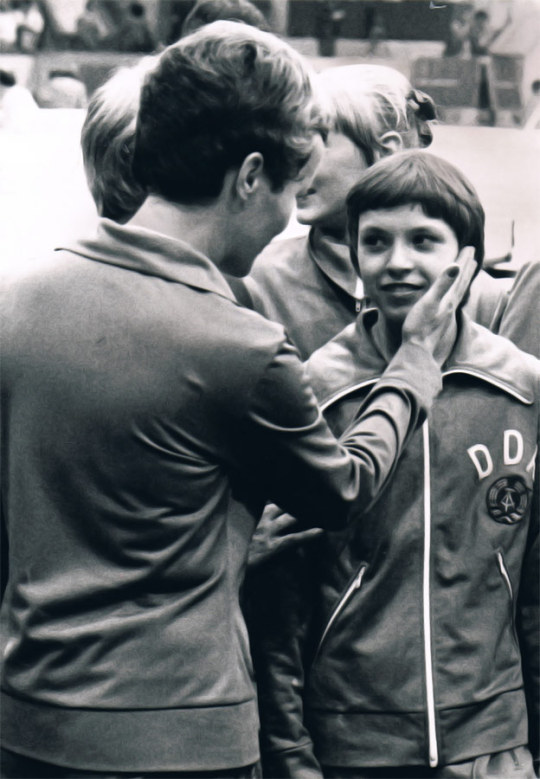
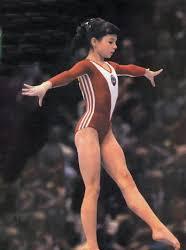
A Gymnastics Mystery: Was the 1981 World Championship Stolen? Part 2 - A Nearly Perfect Year
In our last episode I introduced one of the greatest mysteries in gymnastics history. Did the East German government ask Maxi Gnauck to fake an injury thus taking herself out of the 1981 All Around World Championship which was held in Moscow and won in a podium sweep by the Soviet Union. To understand why this is even a question we first have to examine the 1981 elite season (and some of the insanity that happened during it).
The previous year the 1980 Olympics was an unseemly mess where the Romanian vice president of the Women’s Technical Committee held up the All Around for almost half an half an hour trying to get Nadia Comăneci beam score raised so that she could win her second Olympic AA. When she couldn’t convince the judges and technical officials to raise the score she simply refused to the score into the computer. Meanwhile on the sidelines Bela Karolyi was screaming about corruption and unfair scoring against his gymnasts including Emilia Eberle in the uneven bars final. The winner of that final was 16 year old East German Maxi Gnauck and she also had to share the AA silver with Nadia.
If the drama and ill spirited corruption was at unprecedented levels during the 1980 Olympics, things just got worse (and stranger) at the beginning of 1981. In January 1981 the Romanian gymnastics team, coached by Bela Karolyi, visited the United States to attend an invitational competition where their headliner was to be Ekaterina Szabo, the reigning junior European Champion. Except the girl carrying Szabo’s passport wasn’t Ekaterina Szabo but Levinia Agache (another future Olympic gold medalist).
youtube
We’ll never know why the Romanians did this. Some people have suggested the meet organizers were aware of the deception though Kathy Johnson on twitter strongly denied that, saying the only reason anyone knew something was wrong was because an American gymnast in the crowd had seen Szabo at a previous meet and alerted officials. But as the passport was issued by the Romanian government and they had no more proof of the impersonation the matter was dropped for the time. Two months later the Romanians would return to the United States this time with the real Ekaterina Szabo and Levinia Agache carrying her own passport. Because.... why... anyway it was on this trip that Bela Karolyi and his wife Marta would defect.
A few months later the first major gymnastics meet of the year the European Championships was held in velodrome in Madrid. [As an aside, for some reason velodromes were very popular for hosting gymnastics meets in the 1980s, not only the 1981 Euros, but the 1985 and 1987 World championships and I seem to recall at least one other Euros that decade were held in velodromes.] At this meet the USSR did not send Olympic AA gold medalist Elena Davydova, but instead 3 rising talents Alla Misnik, Natalia Ilienko, and a “new senior” age falsified Olga Bicherova. It’s important to remember that in an age when the sport was dominated by European gymnasts the European championships was a bellwether for the winners of world and olympic competitions. Nadia Comăneci announced herself to the world, not at the American Cup as the American gymnastics federation liked to say, but rather at the European Championships before the Montreal Olympic Games. It can be assumed that the Soviets wanted to use the event to introduce their new stars to the world.
The only problem with that plan was Maxi Gnauck turned that Spanish velodrome into her personal stage to demonstrate her dominance. She won the AA by .3 over Romanian Cristina Grigoras, with Misnik and Ilienko come in 3rd and 4th. Bicherova had a disaster of a meet and came in 23rd. Gnauck also took 3 of the 4 event gold medals, having to settle for “only” a silver on vault. Now one of the great things about 1981 Euros is that we have incredibly high quality film of the event (without commentary so you can hear how incredibly loud it was whenever anyone landed a vault or a beam dismount). it’s worth looking at those event finals to see what kind of shape Gnauck was in.
Let’s start with vault, the only gold medal that Gnauck did not win...
youtube
Skip to 13.37 for Gnauck’s vaults, if you want to watch the entire final I suggest you skip ahead in the video as it includes both the beginning sound test and the full warm up period. The things I want you to see here are just how much power she had coming down the runway and how good her form was. Remember this was an age before Yurchenko entries where gymnasts had to get all their power from a handspring block. Gnauck would tie for silver with her countrywoman the amazingly named Birgit Senff.
It’s as good as any time to talk a little bit about ties in 1970s and 1980s gymnastics because they can be an indication of corruption in that a rightful winner wouldn’t be denied outright but would have to share their win with the favored gymnast. But generally I think modern viewers just don’t realize how easy it was to tie when scores could only be given in increments of .1 and there were only 4 judges two of whose scores were dropped. There were only so many possible scores and so you were simply mathematically more likely to tie before the judging panel was expanded and deductions could be given in increments of .05. It also helped that no one seemed particularly interested in breaking ties.
youtube
After that “disappointing” silver we move onto Gnauck’s stroll through dominating the entire European field. Skip to 20.08 for her bars routine. As with her 1980 bars I’d like you to look at how good her form is, and let me repeat again this bars set was so consistent that you could essentially pick any competition between 1979 and 1984 and see the same thing from her.
youtube
Next came the balance beam. Start at 19.21 for Gnauck. Now Maxi is not the kind of beamer that you will want to write poetry about, and she has two significant balance checks here. She barely won this title by .1, a margin she carried over from the AA (a routine you can see here at timestamp 2.01.31). I urge you to look at the AA beam performance without the balance checks to understand just the high level of beam tumbling difficulty Gnauck had in 1981.
At this point you may be wondering about the socks/ankle taping, since the question of the injury at worlds was her ankle. But this kind of extreme ankle taping was not just common but basically universal among East German gymnasts. It’s not evidence of an injury. There is a reason I will sometimes describe a heavy ankle tape job as “being taped like an East German”. But hey if you are doing that level of beam difficulty and landing on those cardboard mats I think you might proactively tape your ankles too...
youtube
And then we come to the floor final which she wins by .2, not entirely by her carry over score (she did better in the final relative to the silver medalist and lost ground relative to the bronze medalist). The European Championships was an optionals only competition (the AA acted as qualification for EF and the scores carried over) so you couldn’t hide score fixing in compulsories like you could at the World Championship. You can find Gnauck’s routine at 7.00 minutes into the video (the floor silver medalist Alla Minsk of the USSR is at 10.40, and the floor bronze medalist Cristina Grigoras of Romania is at 31.39). I think you can understand the placing simply based on landings and tumbling difficulty.
Normally this is the point when I talk about East Germans that I have to try and make an excuse for their weird floor music and chorographical choices. Gnauck has her share of them and I wouldn’t call her balletic. But she is performing, clearly has dance training, and I think if you look at her and think about any “power gymnast” of the modern era you can understand her. As it happens at this competition I don’t feel the need to defend her choreography given that the Soviets were in their disco period and the Romanians were still using Geza Pozsar choreography (he had defected only weeks before).
I think there are arguments to be had about Eastern Bloc leotard bonuses at Worlds (and I think in particular Ma Yanhong had legitimate grievances over it), but the thing I want to emphasize here is that the people Gnauck was beating here weren’t the Chinese or the western Europeans or the Americans. She was beating the Soviets and the Romanians. Even if the East Germans were overscored they weren’t being overscored over the Soviets or the Romanians.
Gnauck came out of the 1981 European Championships with 4 gold medals, and 1 silver medal. She had come away from the 1980 Olympics with 4 medals as well as a 4th in the Balance Beam final that Nadia won IMO on reputation (only .1 of a point covered 1-4 in the 1980 Olympic Balance Beam final).
Coming into Moscow there would have been no question that she was the prohibitive favorite to win the World All Around.
Next time: The world’s most comically corrupt elite gymnastics meet and the strange events of the 1981 World Championships.
4 notes
·
View notes
Text
WWII Watch: Watch on the Rhine (1943)

Watched: 03/12/2023
Format: TCM
Viewing: First
Director: Herman Shumlin, Hal Mohr (uncredited)
I had never seen Watch on the Rhine (1943), which is a bit odd. It stars Bette Davis, who is tops in my book. But, the real reason is: back in the early 1990's I was a high school drama kid. In the spring of 1992, I worked tech support and understudy on Watch on the Rhine, which my school took to UIL One-Act Play competition. We trimmed the show down to a 40 minute version of the 1941 stage play,* which I guess I ran through dozens and dozens of times.
The play was a formative experience for multiple reasons, not least of which included pondering the content of the play every day for months on end. But, still, I was sixteen when I read the play and just turned 17 when the experience was over. So my perspective was widened but life hadn't come at me. I didn't yet fully grasp the forces at work, what had happened in the decade or more before the war, how WWI led directly to WWII, and that the world is not a simple place and always 100 times more complex than you believe at first blush, ways that inform the movie and play.
Watch on the Rhine takes place prior to US involvement in WWII. In the year before the war, the play spoke to complacent Americans of what's coming and who has already been fighting the good fight against legitimate forces of darkness in the form of Nazism and Fascism. It was a rallying cry in a time where Americans were still deeply reluctant to see how they played a role in the Pacific or European theaters. The films was released mid-war as a reminder to those on the American homefront of the rightness of our participation, and a reminder to folks in their comfortable homes that Europe hasn't had the luxury of being an ocean away. Some were fighting for their homelands taken over by mad men.
The film stars Bette Davis (who was vocally anti-Nazi) as Sara - an American who left her cushy life for Europe after the death of her father at age 18. There she met a German, Kurt (Paul Lukas) and married him. By 1934, Kurt became involved in the resistance movement against the Nazis and the family of five has been moving around Europe as Kurt routinely makes incursions into Germany and fighting Nazis across the continent while sticking to the shadows. Sara brings her family to her birth family's mansion in the suburbs outside of DC - where they find the American wing of the family are unaware of the genuine state of Europe and oblivious to what Kurt and Sara have been doing - and aren't even sure what side they'd be on.
A scheming Romanian count married to one of Sara's childhood friends is staying with the family as refugees, and he seeks to exploit the situation, igniting the drama of the film.
Sara's mother is played by Lucille Watson, a society woman with charmingly skewed perspectives and priorities. Sara's brother is played by Donald Woods, their housemaid by Beulah Bondi, her childhood friend by Irish-born Geraldine Fitzgerald. The Romanian count, the perfectly cast George Coulouris.
The three children are little adults, made mature by their life experience, with the elder son more than ready to join his father in the fight. It manages to be charming more than annoying, Hellman finding the right balance of knowing eye rolling at the younger son.
The play was originally written by Lillian Hellman, famous for shows like The Little Foxes, and was adapted for screen by Dashiell Hammett (Hellman and Hammett's romance is one of those legendary literary things where you watch a genius fall apart). There's significant additional material added to the film, and my memory of the play itself is both hazy after 30 years and the product of a script cut down to run 39 minutes. But I do feel the movie's additional scenes do much to take the script into the wider world and provide context delivered entirely through dialog in a play that's locked down to a living room and patio.
I was unclear if my welling up at Sara's arrival was a memory kicking in from high school I hadn't touched in 3 decades or Bette Davis being amazing. Probably both. There's a lot tied up in the film, play, memory and what you know if you're already familiar with the characters - although it works phenomenally well on a first viewing. Bette Davis can convey a thought or idea with a degree of a smile or glance of the eye.
But, really, watching the film now plays very differently than how the it hit in the early 1990's where it felt like a relic from a black and white era of my grandparents and their parent's concerns, when I hadn't quite figured out how history works. And, I think a replay of the film or a remake would be a fascinating exercise now - though I wouldn't bother to update it to the modern era (but would certainly find a better way to deal with the Black characters in the film). The movie says what it says about America and it's worth hearing. But whether anyone wants to pay attention or remain in the magnolias is what we're all waiting to find out.
*my starring part was playing the play's singular gun-shot. Blanks and real guns were not allowed, so we had to create the sound by taking a broom stick and smashing it down over a big, wheeled empty box we carried our props in when we traveled. I got remarkably good at making a loud sound of some kind - it didn't sound like a gun - and only went through about 10 brooms during the play's run. I also developed my still phenomenal Tetris-like organizational skills loading the van when we packed our set and props for competition at other locations.
https://ift.tt/HG1yW5B
from The Signal Watch https://ift.tt/dAfrwj1
1 note
·
View note
Photo
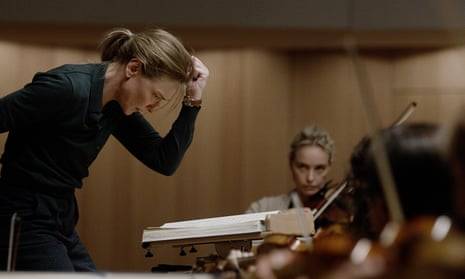
Harassment, hierarchies and discreetly rubbed trousers: the exhausting politics of orchestras
Cate Blanchett film Tár shows how damaging a maniacal conductor can be – but, as musicians explain, orchestras are riven with other serious structural issues‘They can’t all conduct, honey”, Lydia Tár informs her daughter as she hands each of her dolls a pencil to use as a makeshift baton. “It’s not a democracy.”In her sharp put-downs, sidelining of procedure, and singular, maniacal artistry, Tár – played by Cate Blanchett in the film of the same name – embodies all the tropes of the autocratic conductor. The first of a glut of forthcoming “maestro movies” (Bradley Cooper’s Leonard Bernstein biographical drama Maestro is currently in production, as is The Yellow Tie, on the life of firebrand Romanian conductor Sergiu Celibidache), Tár isn’t just a character study, though – it depicts the intertwined social and artistic hierarchies, subtle codes and often grotesque power dynamics of the orchestra as a workplace. Continue reading...
https://www.theguardian.com/music/2023/mar/01/tar-conductor-orchestra-harassment
1 note
·
View note
Text
REBLOG: from dailyworldcinema film THE BLUE ANGEL (1930) (1218)

Whatever can be said about this film, right off the bat, it is a CLASSIC FILM and a historical representation of the moment in film.

The Blue Angel (German: Der blaue Engel) is a 1930 German musical comedy-drama film directed by Josef von Sternberg, based on Heinrich Mann's 1905 novel Professor Unrat (Professor Filth) and set in an unspecified northern German port city.

dailyworldcinema Jun 30 Marlene Dietrich in The Blue Angel (1930) Dir. Josef von Sternberg
The Blue Angel presents the tragic transformation of a respectable professor into a cabaret clown and his descent into madness.
The Blue Angel - Wikipedia
The Blue Angel (1930) - IMDb 7'7
The English version which is a little hard on the ears and sometimes difficult to understand, however some allowances can be made for a the classic.
LINK https://ok.ru/video/1205418723842
The film was shot simultaneously in German- and English-language versions. Though the English version was once considered a lost film, a print was discovered in a German film archive, restored and screened at San Francisco's Berlin and Beyond film festival on January 19, 2009. The German version is considered to be "obviously superior"; it is longer and not marred by actors struggling with English pronunciation.
NOTES
The film was the first feature-length German sound film and brought Dietrich international fame. It also introduced her signature song, Friedrich Hollaender and Robert Liebmann's "Falling in Love Again (Can't Help It)". The film is considered a classic of German cinema.
I have to admit, I am fascinated by REMAKES.
Remakes, adaptations and parodies 1959 The Blue Angel, director Edward Dmytryk's remake with Curd Jürgens.
link https://ok.ru/video/1843272485445
1966 Pousse-Cafe, a 1966 Broadway musical version with music by Duke Ellington. It was unsuccessful and closed after three performances.
Pinjra (1972), director V. Shantaram's highly successful Marathi/Hindi adaptation with Sandhya and Shreeram Lagoo.
1988 Lola, director Rainer Werner Fassbinder's loose adaptation of the film and its source novel.
1991 The Royal Shakespeare Company produced a stage adaptation, written by Pam Gems and directed by Trevor Nunn, that toured the UK from 1991 to 1992.
1988 In 1998, the Gems adaptation was translated to Japanese. With added songs composed by accordionist Yasuhiro Kobayashi, the Japanese version was staged as a musical starring Kenji Sawada at the Bunkamura in Tokyo.
2001 A stage adaptation by Romanian playwright Răzvan Mazilu premiered in 2001 at the Odeon Theatre in Bucharest, starring Florin Zamfirescu as the professor and Maia Morgenstern as Lola Lola.
2010 In April 2010, Playbill announced that David Thompson was writing the book for a musical adaptation of The Blue Angel, with Stew and Heidi Rodewald providing the score and Scott Ellis directing.
VARIOS: Lola Lola's nightclub act has been parodied on film by Danny Kaye as Fraulein Lilli in On the Double (1961) and by Helmut Berger in Luchino Visconti's The Damned (1969).
REBLOG: from dailyworldcinema film THE BLUE ANGEL (1930)
0 notes
Text

Movies I watched this week (#181):
“It’s a pity we haven’t got a bit of rope..”
Prompted by the HootsMaguire's essay, I was reminded that I’ve never seen Waiting for Godot (2001). Beckett's absurd play is so fantastically original. Two shabby fellows, confused, belligerent and forgetful, argue with each other for 2 solid hours, without making any sense or connection. Two other odd characters appear, a master and his slave, and then a laconic messenger boy. But everybody's memories are definitely defective, and they must repeat everything again and again - not that it helps. And the allusive Godot of course never appears. (Photo Above).
So what the heck does it all mean? I haven't got a clue, but it's mesmerizing. 9/10.
🍿
The 2 last parts of Abbas Kiarostami‘s ‘Koker Trilogy’:
🍿 I don't know why I waited so long to watch these two movies, since I loved his first entry 'Where Is the Friend's House?'.
And life goes on (Also called 'Life and nothing more') is a simple but clever semi-documentary meta-film. In 1990, a devastating earthquake killed 50,000 people in a remote Persian area. A filmmaker brings his son with him on a trip to the destroyed village which was the location of his previous film. They want to check if any of the kids from the first movie survived. Like most Iranian movies I've seen, the cars are old, barely moving jalopies, and the deafening noise from street traffic stands out as another character of the story. 8/10.
🍿 Through the Olive Trees Goes Meta one level up. It's a lovely continuation of the 2nd chapter, peeling a 'Day for night' onion of 'how it was filmed' in a primitive village settings. Recreating the memorable terrace scene and adding a maybe-true, maybe-fiction story of the boy and girl who played the newly-wed. Beautiful rendering with a sad, sad final shot that last for a long time, and doesn't offer clear explanations. And everything is permeated by death and destruction. 9/10.
🍿
2 documentaries by Todd Douglas Miller:
🍿 “… Houston. Tranquility Base here… The Eagle has landed…”
Apollo 11 is an exhilarating 2019 re-telling of the moon landing. Perfectly crisp and emotionally laid out, without any bullshit narration, talking heads interviews or irritating recreations. Just jaw-dropping photography which puts you in the middle of the action. And the display of massive technology is overwhelming: Thousands of engineers and scientists who had built such an inhuman infrastructure (and where each bolt and wire must work 100% of the time!) - 10/10.
On July 20, 1969, I was a 15-year old, arrogant prick, who refused to respond to anything that was shown on TV, so instead of watching the actual event 'live', I ignored it, taking a stroll in the night streets and pondering my miserable life. What an insufferable idiot I was! (And probably still is).
🍿 Miller's earlier docu-drama Dinosaur 13 however, was a huge let-down. A fascinating start about the South Dakotan paleontologists who unearthed the "Sue" skeleton, turned into a standard 'True Crime' melodrama. Full of dull reenactments, wall-to-wall musical score that tells you how to feel, boring interviews where the characters sit and emote while recalling every step of what happened, fill-in visuals, obvious narrative... Disappointing!
🍿
3 by Romanian Adrian & Claudia Silișteanu:
🍿 The Ditch (2012), a terrific rustic comedy about a peasant who has to dig a ditch in front of his house, and like Tom Sawyer, would rather hide in the barn and drink while letting somebody else do the labor. 8/10.
🍿 Written / Unwritten (2016) is another unexpected drama about unpredictable, ungovernable and very loud gypsies. A baby is born, and the nurse needs to fill out the correct paperwork in order to release her. Best film of the week!
🍿 The Afghanistans (2019) is very different. It starts with a soldier trying not to be shot, and develops into an intricate power play of government, bureaucracy, refugees and hard negotiations.
I would watch anything else these 2 will produce!
🍿
Raffaello Matarazzo was a successful Italian director, in the days before Neorealism. His Tourist Train (1933) is the first comedy from the Fascist era that I’ve seen. But it has no political elements. Just a lovely trip into the Umbrian countryside by a group of middle class people, and their light adventures by the river in Orvieto. Nino Rota’s first film score. 6/10.
🍿
Hollywood's depictions of the deep South X 3:
🍿 Rich Hall's The Dirty South, my first by comedian Rich Hall, a tongue-in-cheek documentary for the BBC, about how Southerners were portrayed through the years by the movies, from Li'l Abner and Rhett Butler to 'Your cheatin' heart' and Burt Reynolds. 'If you needed Hollywood to tell you about these musicians, then you're a grazer. Fuck you.'
Next on my list: His entries about American 'Road movies' and 'Westerns' genres. (Thanks to u/jupiterkansas.)
🍿 "What we've got here is failure to communicate."
Peak Paul Newman as Cool hand Luke, a rebel without a cause, another Randle McMurphy sentenced to an institute that will do everything it can to break his freewheeling spirit. Self-destructive, anti-social nihilist, sticking it to the Man, until he can no more. Good old Chain-gang romanticism, lays it thick: When he finished eating 50 hard-boiled eggs in one hour, he's left laying like a crucified Jesus on the table, a beautiful, bare-chested specimen. 💯 score on Rotten Tomatoes.
🍿 Baby Doll was another scandalous Tennessee Williams / Elia Kazan tale of unconsummated desire. Sweaty failures tearing each other down. A sexually-frustrated, boozy husband losing his gin-cotton business. A 19-year old virgin Lolita, who doesn't realize the effects she has on all men around her. Eli Wallace in his first role as a hot Sicilian lover-type, bent on revenge. Two black share-croppers acting as a Greek chorus. No wonder The Catholic Legion of Decency boycotted this 'filth'.
🍿
Unrelated, my first film by Joanna Hogg, which was also her debut feature. A British woman escapes some marital issues by staying with friends at a villa in Tuscany (which was nice). The film is highly-acclaimed, but I found the whole story dull and un-engaging. [*Female Director*]
🍿
"Never sweep the place where you live. Because after four years, the dirt doesn't get worse!"
An Evening with Quentin Crisp is my introduction to the controversial gay iconoclast, English raconteur and witty performer. The YouTube copy is of low-quality, but the content is 'Marvelous'.
Next: The two movies based on Crisp’s work, with John Hurt playing him, 'The naked civil servant' and 'An Englishman in New York'. (Also, a deep dive into John Hurt’s meatiest roles!).
🍿
Brat Pack X 2:
🍿 I haven't seen nearly any movies from the 'Brat Pack' universe, and wasn't vested in any of the actors' careers. So Andrew McCarthy's new autobiographical documentary, Brats, didn't carry any nostalgic resonance with me. It's also about the pervasiveness of pop culture television from the 80's, which was even less interesting. But his pained journey of discovery felt unexpectedly honest. He used this film as a form of personal therapy, which is Okay, I guess. I also didn't realize that this was the first time when Hollywood zoomed in its focus on teenagers and the young, and that these actors were elevated to carry the money torch. 7/10.
🍿 So I thought I'll try some of these '80s classics I had missed out on. Unfortunately, I started with Class (1983), which was Rob Lowe's 2nd film, as well as the debut of McCarthy, John Cusack, Virginia Madsen, and Lolita Davidovich. Badly-remake of 'The Graduate' with cringy prep school tropes was a second rate sex comedy. Couldn't finish it.
🍿
Roger Corman's horror-comedy Bucket of blood taking place in a late-'50s counterculture scene, where phony "Bohemians" and "Beatniks" and "Artists" are fawning over the busboy's macabre clay sculptures. "I love everything about Roger Corman except his films..."
🍿
A bunch of shorts from all over:
🍿 Rain Town, a beautiful, calming Japanese fairy tale about a little girl in a yellow raincoat. With the spirit and soul of Ghibli magic. 7/10.
🍿 How a bicycle is made, a short British Council How-To film from 1945. Impressively primitive.
🍿 Neighbours, my first by Canadian Norman McLaren. An anti-war stop-motion parable which won the Oscar in 1953. The Coen Brothers must have seen it before making 'A Serious Man'.
🍿 Daybreak Express, D. A. Pennebaker first film from 1953. Set to a Duke Ellington tune. Jazzy and poetic, nearly abstract. 7/10.
🍿 Dead End, another fantastically-nihilistic nightmare from Victoria Vincent about a depressed school counselor and even more desperate youngster. 9/10. [*Female Director*]
🍿 He starred in 200 movies, and many of them were 'Bad'. Still, he never won an Oscar. Now that The Don is gone, what should I watch in his memory? One of the great ones I've already seen ('Don't look now', '1900', 'Klute', 'Casanova', 'Invasion of the body snatchers') or one that I haven't ('The dirty dozen', 'Kelly's Heroes', 'Buffy the Vampire Slayer, 'Cold Mountain')?
So meanwhile, here's Cloudbusting, where he plays Orgonomist Wilhelm Reich and Kate Bush plays his son. [I like the song more when it was used at the climax of 'Palm Spring' though.] RIP, Donald Sutherland!
🍿 Look at life, George Lucas very first experimental film, made in 1965, while he was still a student at USC, and heavily influenced by Canadian Arthur Lipsett. Found at a new in-depth analysis of the Brainwashing Film within Film from Pakula's 'The Parallax View': A must-read for anybody who loves the 'Paranoia Trilogy'!
🍿The F-Word, A Father-Daughter Swearing Lesson, from The New Yorker. A riff on the old 'What The Fuck!' The English Language's Most Versatile Word.
🍿 The Letterboxd Oscars: Some guy edited a 32 min. YouTube video, comparing all the Best Movie Oscar Winners to the list of Letterbox highest-rated movies from each year. In 94 years, only 10 were the same for both. Obviously, today's user base of Letterbox skews international, and loves their auteurs.
🍿 Passionless Moments (1983), 10 tiny vignettes about the secret life of random thoughts. An early short from Kiwi director Jane Campion. [*Female Director*]
🍿
2 tobacco-related movies:
🍿 The Stolen Jools (1931) which crams cameos by no less than 55 then-stars into a 20 minutes mystery plot. Everybody from Gary Cooper and Our Gang, to Irene Dunne and Maurice Chevalier. It was a charity project to raise funds for a Tuberculosis Sanitarium - sponsored by Chesterfield cigarettes!
🍿 Thank you for smoking had some cute opening credits. Nepo-baby Jason Reitman made some excellent movies later ('Juno', 'Up in the air', 'Tully'), but not in this, his first feature. Produced by Elon Musk and Peter Thiel, this libertarian black comedy was unwatchable. JK Simmons played the exact same role he did in 'Burn after reading', and Robert Duval had a moment, but Aaron Eckhart cannot act, and the satire didn't work. 1/10.
Fun fact: Not one single cigarette was smoked in this movie about cigarettes.
🍿
I’ve disliked Netflix for many years now, and try to avoid anything that starts with the dreaded "N" logo. Last week, when writing about ‘Hit Man’, I coined the phrase ‘Netflix chum’. [Hat tip to Roy Scheider.] Here is my definition for it: “Brainless, artless, empty-calories and algorithm-driven dreck. Surface-sleek, fast-edited dogshit for the broadest lower denominators. Movies that are soul-sucking dead inside. They make you hate yourself for wasting your life in front of the screen. The reason why you cancelled your membership years ago.”
Case in point, the new Netflix action caper Trigger warning. I was lured in by the “Indonesian female director's first thriller in English”. But then, everything about this production was worse than lame: The script, story and acting were bad. The emotional core was fake. Action was awful. Score: 1/10. [*Female Director*]
🍿
Throw-back to the Adora Art project:
Adora on her bicycles.
🍿
(My complete movie list is here).
1 note
·
View note